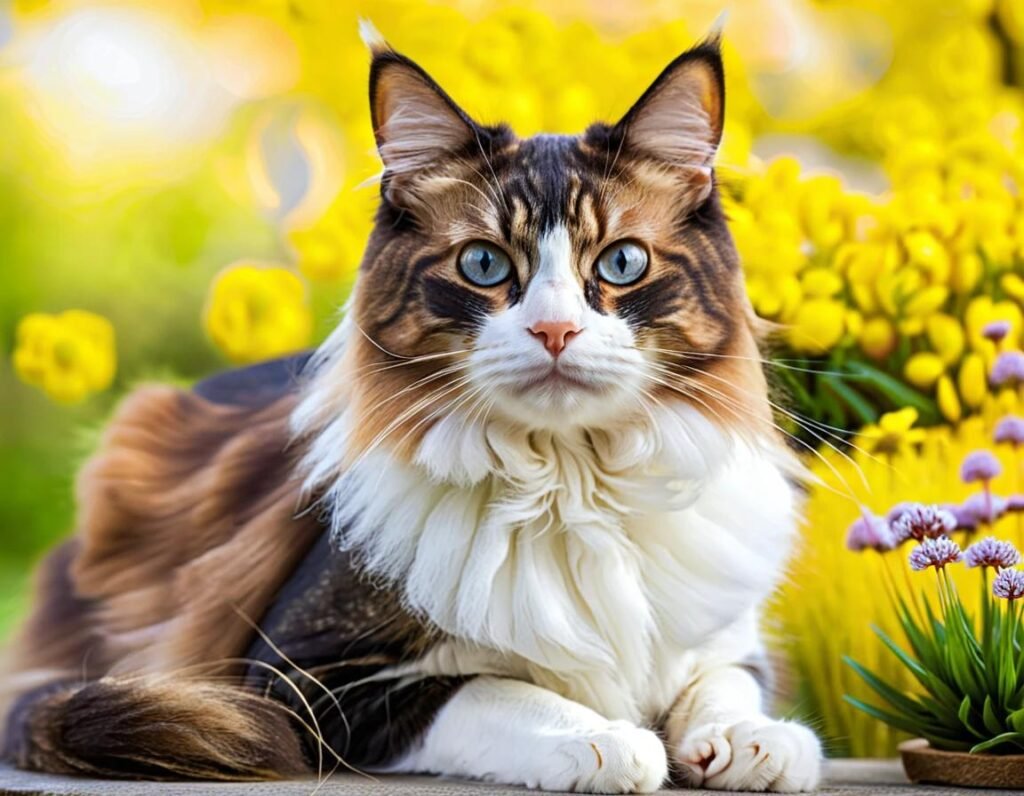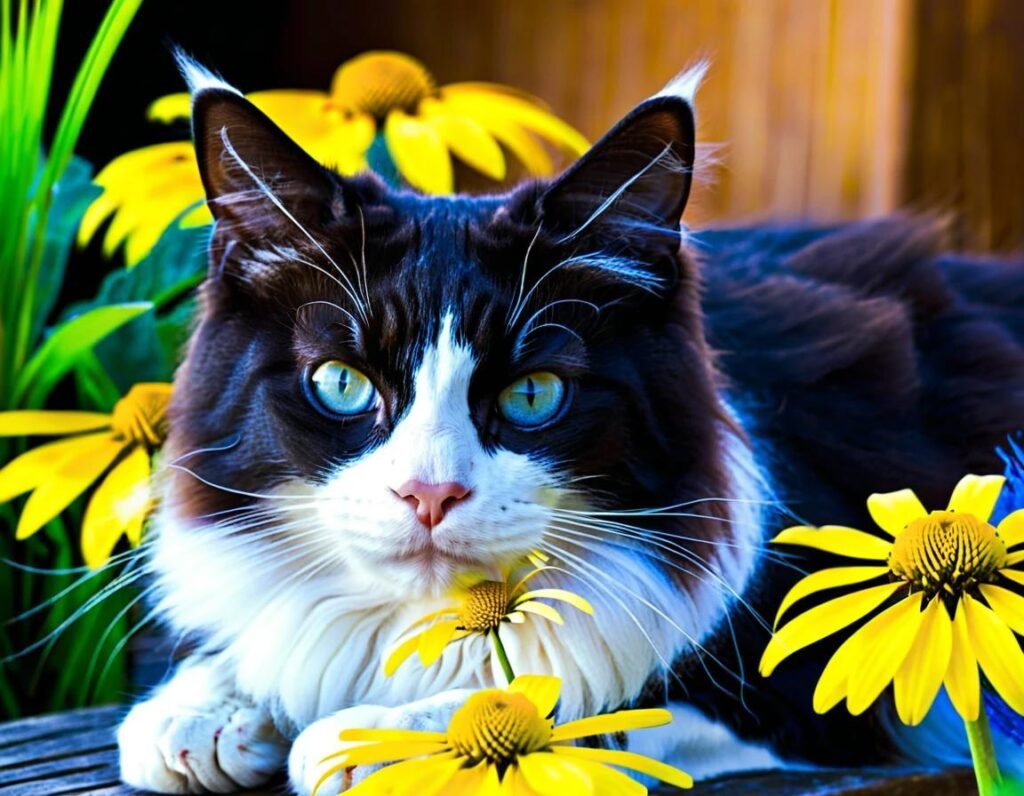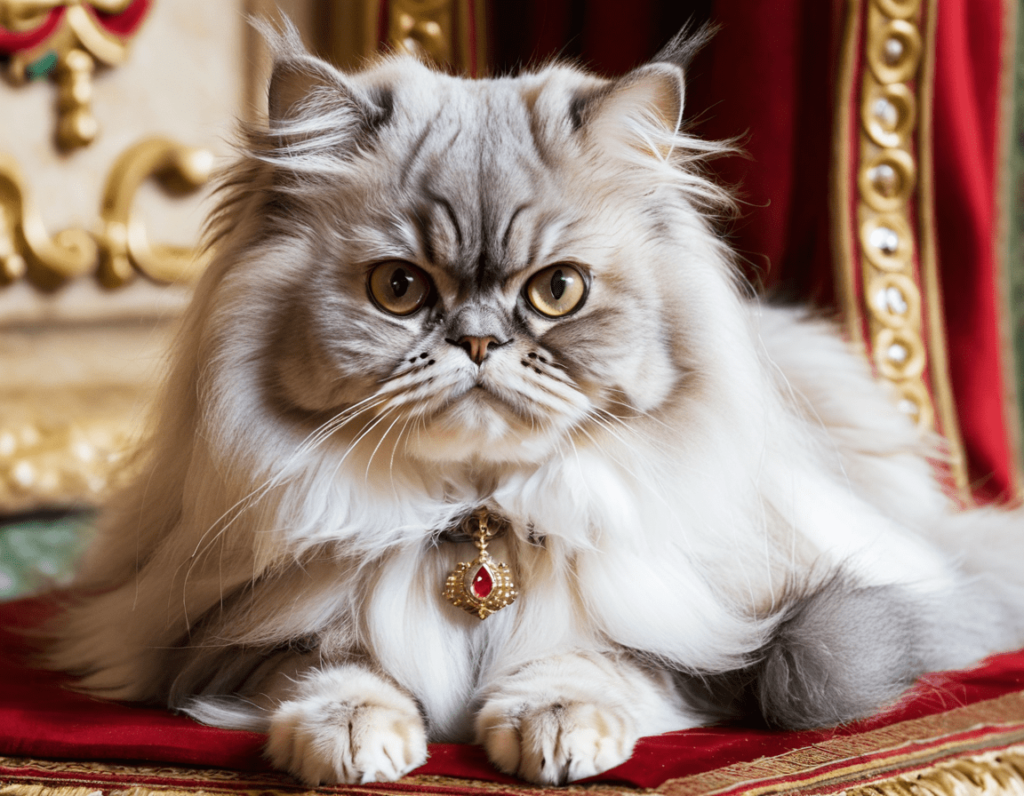
Best Cat Breeds for Allergies: The Furry Friends That Won't Make You Sneeze
Do you love cats but find yourself sneezing, itching, or having a runny nose every time you get near them? If so, you’re not alone! Cat allergies are a common problem for many people. But don’t worry; just because your immune system doesn’t always get along with cats doesn’t mean you have to give up your dreams of adopting one. Some cat breeds are known for producing fewer allergens, so you can still enjoy the company of a furry friend without the constant battle with tissues. Let’s take a look at some of the best cat breeds for allergies—and why they might just be the perfect match for you!
Why Are Some Cats Better for Allergy Sufferers?
First things first: no cat is completely hypoallergenic. While some cats produce less of the protein (called Fel d 1) that causes allergic reactions, they still shed dander. However, certain breeds have traits that may make them less likely to trigger allergy symptoms, such as:
- Lower shedding (less fur in the air means less dander)
- Unique coat types that hold dander better
- Smaller amounts of saliva on their fur, as cats tend to lick themselves and spread allergens around
Now, let’s dive into the best cat breeds for allergies that could help you live your best (and least sneezy) life!
1. Siberian Cat: The Allergy-Friendly Fluff
If you think that long-haired cats are a nightmare for allergy sufferers, think again. The Siberian might be your new best friend. This majestic, fluffy breed is surprisingly great for people with allergies, thanks to its unique coat. Siberians produce lower levels of the allergen-producing protein, which means fewer sneezes for you. Despite their long fur, they shed less than most cats, and their coats actually help trap the dander.
Fun fact: The Siberian cat might also be the unofficial mascot of “I don’t need to sneeze to love my cat!”
Best for: People who love cuddly, fluffy cats but don’t want to spend their days sneezing and rubbing their eyes.
2. Balinese Cat: The “Fancy” Hypoallergenic Cat
If you like your cats to be sleek, elegant, and a bit on the posh side, the Balinese could be the breed for you. Sometimes referred to as the “long-haired Siamese,” the Balinese is known for producing fewer allergens than other cats. They have a silky, fine coat that doesn’t shed much, and they are often considered one of the most hypoallergenic breeds.
These affectionate and playful kitties love to be around their humans, so if you’re looking for a social cat that also won’t leave you reaching for the tissue box, the Balinese is a winner!
Fun fact: Balinese cats are known for their vocal personalities. They may not be able to speak English, but they sure will let you know what they want with a meow or two!
Best for: People who like sleek, vocal cats that enjoy being the center of attention (without all the sneezing).
3. Devon Rex: The Hairless Wonder
The Devon Rex is a quirky little cat with a playful personality and a unique appearance. With its short, soft coat (sometimes barely there), this breed produces less dander, making it a good option for allergy sufferers. The Devon Rex’s thin coat doesn’t shed as much as typical cat fur, and it often has less hair overall.
Despite their slender look, these cats are known for being affectionate, friendly, and fun. They love to be with their people and will happily curl up on your lap—just be prepared for lots of snuggles, and maybe a bit of drool.
Fun fact: The Devon Rex loves to be the center of attention and will often “perform” with its antics—so don’t be surprised if they steal the show with their playful and mischievous ways!
Best for: People who enjoy a high-energy, playful cat that loves attention and doesn’t make them sneeze.
4. Cornish Rex: The Majestic “Alien” Cat
Don’t let the Cornish Rex’s slightly “alien” appearance fool you—this breed is perfect for allergy sufferers. The Cornish Rex has a short, curly coat that doesn’t shed much and produces fewer allergens than regular cats. Their fine, wavy fur is light, which makes them easier to groom and less likely to spread dander around your home.
If you want a cat that’s both strikingly beautiful and kind to your sinuses, the Cornish Rex is a great option. These cats are known for being extremely friendly, affectionate, and playful, making them a fun addition to any home.
Fun fact: If you’re not careful, a Cornish Rex might just steal your blanket during the night—after all, they’re known to love snuggling up!
Best for: People who like quirky, social cats that don’t shed much and love to cuddle.
5. Sphynx Cat: The Famous Hairless Companion
The Sphynx is the ultimate hypoallergenic cat—well, in terms of fur, at least. This breed is hairless (or nearly hairless) and is known for producing fewer allergens than most cats. Without the fluffy fur, there’s less opportunity for dander to build up, which is a relief for allergy sufferers.
However, don’t let their lack of fur fool you—Sphynx cats still require regular bathing to keep oils from building up on their skin. Despite their unique look, Sphynx cats are affectionate, outgoing, and love being the center of attention (they’re definitely not shy!).
Fun fact: Sphynx cats love being warm, so don’t be surprised if your hairless buddy seeks out a sunbeam or snuggles in a cozy blanket—just be sure to keep a few extra towels on hand for those regular baths.
Best for: People who want an allergy-friendly, affectionate cat and don’t mind the occasional bath.

Final Thoughts: Your New Best Friend Is Out There
If you’ve got cat allergies, don’t worry—there are plenty of hypoallergenic cat breeds out there that can still steal your heart (and maybe your blanket). While no cat is completely free from allergens, these breeds produce fewer of the proteins that trigger allergies, making it easier to live harmoniously with your new feline friend.
So go ahead—say goodbye to tissues and hello to the perfect cat breed for you. Who knows? Your next cuddle session might just be allergy-free, or at least significantly less sneezy. And hey, even if your cat does manage to trigger a sneeze or two, they’ll always be worth it for the purring and the companionship. Bless you!
Bonus Tips for Allergy Sufferers with Cats
While choosing an allergy-friendly breed is a great first step, there are a few more things you can do to minimize allergens in your home and make life with your cat more comfortable:
1. Keep Cat-Free Zones
Even if you have a hypoallergenic cat, it’s still a good idea to create cat-free zones in your home—especially your bedroom. This will give you a place to escape from allergens and enjoy a good night’s sleep without the sniffles.
2. Regular Grooming
Even though hypoallergenic cats shed less, regular grooming is still important. Brushing your cat helps remove loose fur and dander before it can spread throughout your home. For some cats, you may even want to consider wiping them down with a damp cloth to help trap the dander.
3. Invest in an Air Purifier
A good air purifier can work wonders in removing pet dander from the air. Look for one with a HEPA filter, which is designed to capture tiny particles like dander. Having one in your home can help reduce allergy flare-ups and make the air feel fresher.
4. Wash Hands and Clean Your Home Regularly
After handling your cat, be sure to wash your hands thoroughly, especially before touching your face. It’s also important to clean your home frequently to reduce allergens. Vacuuming with a HEPA filter vacuum and wiping down surfaces can help keep things under control.
5. Consider Allergy Medications
If you’re finding it hard to manage your allergies even with a hypoallergenic cat, talk to your doctor. They may recommend antihistamines, nasal sprays, or even allergy shots (immunotherapy) to help you live more comfortably with your furry friend.
Conclusion: It’s All About the Purrs
Living with a cat and managing allergies doesn’t have to be a constant battle. With the right breed and a few allergy-busting strategies, you can enjoy the love and companionship of your feline friend without too many sneezing fits.
So, whether you opt for the playful Sphynx, the elegant Balinese, or the cuddly Siberian, there’s a hypoallergenic cat breed out there that’s perfect for you. Cats are great at making us laugh, feel loved, and keep us company through the ups and downs. And even if a few sneezes come with the deal, the joy of having a cat by your side is totally worth it.
Now, go ahead and start looking for your new cat companion—but don’t forget the tissues! 😉

FAQs About Cat Breeds for Allergies
Q: Are there truly hypoallergenic cats?
Answer: While no cat is completely hypoallergenic, some breeds produce fewer allergens, which makes them a better fit for allergy sufferers. These cats tend to shed less dander or have coats that trap it more effectively, reducing your exposure. Breeds like the Siberian, Balinese, Devon Rex, and Sphynx are often considered better for people with allergies.
Q: Why do some cat breeds cause fewer allergies than others?
Answer: The primary allergen in cats is a protein called Fel d 1, which is found in their skin cells, saliva, and urine. Certain breeds produce less of this protein or shed it less frequently, which reduces the overall amount of allergens in the environment. For example, Sphynx cats are hairless, so there’s less fur to trap and spread allergens, while Balinese and Siberian cats tend to produce less of the allergenic protein.
Q: Can I still have an allergic reaction to hypoallergenic cat breeds?
Answer: Yes, it’s still possible to have an allergic reaction to hypoallergenic cat breeds, though the reaction might be less severe or occur less often. Every individual’s immune system is different, and some people may still experience symptoms even with breeds that produce fewer allergens. The best approach is to spend some time with a specific breed before making a decision.
Q: Which cat breeds are best for people with allergies?
Answer: Some of the best cat breeds for allergies include:
- Siberian – A long-haired breed that produces less allergenic protein.
- Balinese – A long-haired Siamese known for lower levels of allergens.
- Devon Rex – A short, curly-haired breed that sheds less dander.
- Cornish Rex – A short, wavy coat that doesn’t shed much.
- Sphynx – A hairless breed that produces minimal allergens, though regular cleaning is required.
Q: How can I tell if I’m allergic to a cat before adopting one?
Answer: The best way to find out if you’re allergic to a particular breed is to spend some time with the cat before adopting. If you can, visit a friend’s home who has the breed you’re interested in, or even visit a shelter. If you start to experience symptoms like sneezing, itchy eyes, or wheezing, it’s likely you have an allergy. Always consult your doctor to confirm.
Q: Do hypoallergenic cats need special care?
Answer: While hypoallergenic cats generally shed less and produce fewer allergens, they still need the same care as any other cat. Regular grooming is important to help manage dander, especially for long-haired breeds like the Siberian or Balinese. Cats like the Sphynx will need regular baths to keep their skin clean, as they don’t have fur to absorb oils.
Q: What other steps can I take to manage allergies with a cat?
Answer: Even with a hypoallergenic cat, you can reduce allergens in your home by:
- Creating a cat-free zone (especially in the bedroom).
- Using a HEPA filter vacuum to clean up dander.
- Bathing and grooming your cat regularly.
- Using an air purifier to reduce airborne allergens.
- Washing your hands after handling your cat.
Q: Are there any natural remedies for cat allergies?
Answer: While there’s no cure for cat allergies, some people find relief using natural remedies like saline nasal sprays, essential oils (eucalyptus, lavender), or local honey (believed to help desensitize to allergens). However, these methods may not work for everyone, and it’s important to check with your doctor before trying them.
Q: Can my cat catch allergies too?
Answer: Yes, cats can have allergies too! While they don’t typically develop cat allergies to people, they can be allergic to things like pollen, dust mites, or certain foods. Symptoms in cats might include itching, excessive grooming, ear infections, or sneezing. If you think your cat has allergies, it’s best to consult your vet for diagnosis and treatment.
Q: Do hypoallergenic cats shed more or less than regular cats?
Answer: Hypoallergenic cats typically shed less fur than regular cats, which means less dander in the environment. Breeds like the Cornish Rex and Devon Rex have short, curly coats that shed minimally, while Sphynx cats are hairless and don’t shed fur at all. Even though they shed less, these cats still require regular grooming to help manage their skin oils and any loose hair.
Q: Is the Sphynx cat really allergy-friendly?
Answer: The Sphynx is often considered one of the best breeds for allergy sufferers due to its lack of fur. However, because they don’t have a fur coat to absorb the oils their skin produces, they can develop a buildup of oils on their skin, which can still trigger allergic reactions. Regular bathing (at least once a week) is necessary to keep them clean and minimize allergens.
Q: Are short-haired cats better for allergies than long-haired cats?
Answer: Generally, short-haired cats may produce fewer allergens than long-haired cats, but it depends on the breed. Breeds like the Sphynx and Devon Rex are both short-haired and hypoallergenic, while long-haired breeds like the Siberian and Balinese are also good for allergy sufferers. The key factor is often the amount of Fel d 1 allergen a cat produces, not just the length of its hair.


